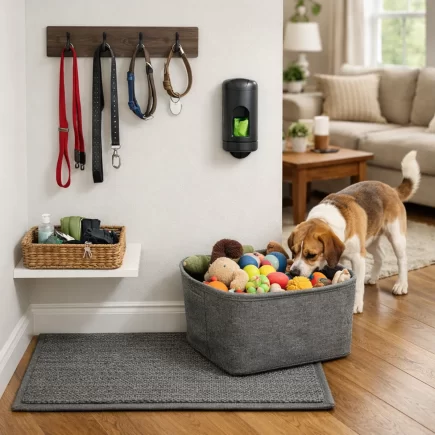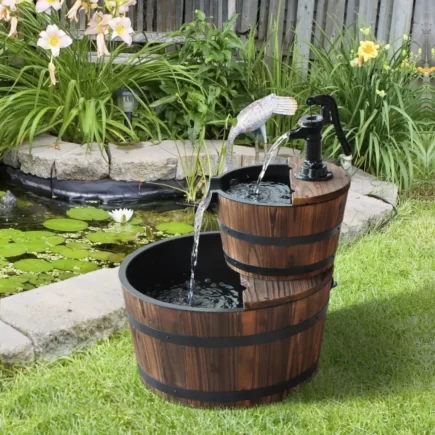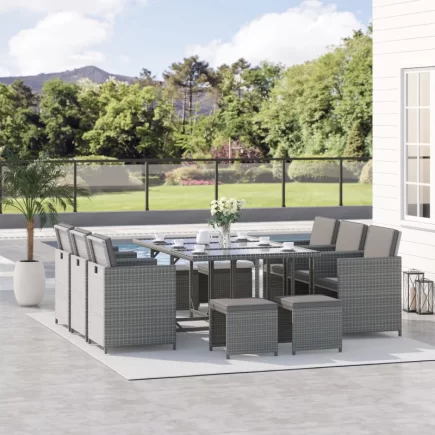When it comes to protecting your vehicle and enhancing your outdoor space, choosing between a carport and a garage can feel overwhelming. Both options offer shelter and protection from the elements, but each has its own set of advantages and disadvantages that may better suit different needs and preferences.

In this article, we will compare the two, focusing on key factors such as cost, space, protection, security, and maintenance. Whether you’re seeking a short-term solution or a long-term investment, this guide will help you make an informed decision based on what matters most to you.
Carport vs Garage
The primary difference between a carport and a garage lies in the structure itself:
Carport
A carport is an open-sided shelter with a roof supported by posts or columns. It typically doesn’t have walls and provides basic protection against the sun, rain, and light snow. Carports are easier to install, more affordable, and are usually portable.
Garage
A garage, on the other hand, is an enclosed structure with walls, a roof, and a door. It offers a higher level of protection against all weather conditions, including strong winds, hail, and snow. Garages can also serve as storage spaces, workshops, or additional living areas.
Protection
When it comes to protection, the level of shelter varies significantly between a carport and a garage. Let’s break it down further:

Carport Protection
A carport offers basic protection from rain, UV rays, and light snow. It is ideal for those who need shelter from the sun or occasional light rain. However, a carport does not provide full protection from extreme weather conditions such as hailstorms, strong winds, or heavy snow. Therefore, it’s best for those who live in areas with mild weather and don’t need extensive coverage.
Garage Protection
A garage, on the other hand, offers complete protection from all weather conditions. Being fully enclosed, a garage can shield your vehicle from rain, snow, hail, extreme winds, and UV rays. In addition, if the garage is insulated, it helps maintain a controlled temperature, preventing freezing during winter or overheating during the summer.
| Protection Factor | Carport | Garage |
| Rain & Snow Protection | Moderate | Excellent |
| UV Protection | Moderate | Excellent |
| Wind Protection | Low | High |
| Hail Protection | Low | High |
| Temperature Control | Low | High (Insulated) |
Space and Storage
Carport Space
Carports offer ample space to park one or two vehicles. Some larger carports can also accommodate storage for motorcycles, bicycles, or garden tools. The open design of a carport makes it more flexible and easier to expand or relocate if needed. However, because it lacks walls, a carport does not offer the secure storage space of a garage.
For instance, the Outsunny 10′ x 15′ Metal Carport, with its heavy-duty galvanized metal roof and removable sidewalls, is a great choice for those needing additional space. This versatile carport can shelter multiple vehicles or provide storage for various tools and equipment. The dark gray canopy offers durability, while the removable sidewalls provide extra protection and privacy when necessary, making it an ideal solution for both parking and storage needs.

Garage Space
Garages offer more enclosed space. They provide not only parking but also secure storage for tools, equipment, and seasonal items. Many garages also feature overhead storage, workbenches, and extra shelving, making them highly functional as storage or work areas. Garages are ideal for those who need extra storage and privacy.
Durability and Longevity
Carport Durability
Carports are typically made from lightweight materials such as aluminum, steel, or fabric. The overall durability of a carport depends on the materials used and the climate of the area. For example, fabric covers may need to be replaced every few years due to sun damage or wear. However, carports made with steel frames are quite durable and can last for several years with minimal maintenance.
The Outsunny 10′ x 16′ Carport features a galvanized steel frame and a UV-resistant PE canopy, ensuring long-term durability and protection.

Garage Durability
Garages are generally much more durable due to the use of strong materials such as metal, concrete, or brick. With proper maintenance, garages can last for decades. They are built to withstand extreme weather conditions, such as high winds, heavy snow, and harsh temperatures. Additionally, the structure of a garage makes it far more resistant to wear and tear than a carport.
Maintenance
Carport Maintenance
Carports require very little maintenance. Most of the upkeep involves regular cleaning of the roof to remove debris and checking for any damage. The primary concern with carports is the roof covering, especially if it’s made of fabric, which might need replacement every few years.
Garage Maintenance
Garages require more frequent maintenance. The most common tasks include lubricating the garage door, checking for leaks, and ensuring the garage door opener is functioning properly. You may also need to perform roof repairs or repainting over the years, depending on the materials used.
Climate Compatibility
The local climate plays a crucial role in choosing between a carport and a garage.

Carports for Mild Climates
Carports are ideal for mild climates. They are great for areas where snowfall is minimal, and extreme weather conditions like hailstorms are rare. Carports offer basic protection from the sun and light rain but may not be able to withstand heavy snow or high winds.
Garages for Harsh Climates
Garages are much more suitable for regions with extreme climates. If you live in an area that experiences freezing temperatures, heavy snow, or strong winds, a garage provides the complete protection your vehicle needs. Garages are insulated and built to withstand harsh conditions.
Cost Comparison
Cost is one of the biggest factors in deciding between a carport and a garage. Let’s explore how each option stacks up in terms of both initial investment and long-term expenses.

Carport Cost
Carports are significantly more affordable compared to garages. The initial installation cost is relatively low since carports require fewer materials, and the labor involved in setting them up is less intensive. Many carports are available as DIY kits, which can help further reduce expenses. Additionally, the maintenance costs are generally lower as carports do not have moving parts, like garage doors, that require regular upkeep.
For example, the Outsunny 12′ x 20′ Portable Garage offers a cost-effective solution for parking or storage with its durable steel frame and ventilated canopy. It’s an affordable and practical option for those looking for reliable vehicle protection without breaking the bank.

Garage Cost
Garages, especially those built with quality materials like steel, concrete, or wood, are more expensive. The initial cost of construction can range from $10,000 to $50,000, depending on the materials, size, and location of the garage. In addition to the upfront cost, garages require more maintenance in the long run, including repairs to doors, roof inspections, and potential upgrades for electrical wiring or plumbing.
| Cost Factor | Carport | Garage |
| Initial Installation Cost | Low to Moderate | High |
| Maintenance Costs | Low | Moderate to High |
| Long-Term Investment | Low | High |
Long-Term Investment
A garage adds more value to your home, especially if it is attached. An attached garage is a desirable feature for many homebuyers, as it provides security, extra storage, and convenience. This can significantly increase the resale value of your property.
On the other hand, a carport offers functional protection but typically does not contribute as much to your home’s resale value. Carports are more of a short-term solution and don’t offer the same long-term investment benefits as a garage.
Which Is Right for You?
The choice between a carport and a garage depends on your budget, climate, space needs, and security concerns. If you’re looking for an affordable solution and live in a mild climate, a carport might be the perfect choice. However, if you need full protection, and extra storage, a garage is a better long-term investment.
FAQS
1. Do I need a permit for a carport or garage?
Yes, permits are often required for both carports and garages, but the specifics depend on your location and the size of the structure. For a garage, especially if it’s fully enclosed and permanent, you will almost certainly need a permit. Carports may also require a permit if they exceed a certain size or if you’re making significant structural changes. Always check with your local municipality or building authority before starting construction to ensure compliance with zoning laws and building codes.
2. How can I make my carport more weather-resistant in a rainy climate?
To make your carport more weather-resistant, consider adding sidewalls or a canopy cover that offers extra protection. Using a durable, waterproof material like polyethylene for the roof can help shield your vehicle from heavy rain and moisture. Regularly check for leaks and reinforce weak spots to maintain its effectiveness.
3. Can I install a carport myself?
Yes, many carports come as DIY kits, making them relatively easy to install by yourself. However, it’s important to follow the manufacturer’s instructions carefully and ensure that the site is level for proper installation. Having a second person to assist can make the process faster and safer.





























